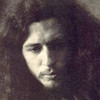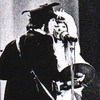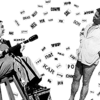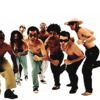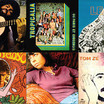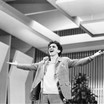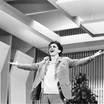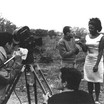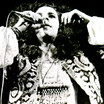Ilumencarnados seres
Três trópicos da tropicália
a conversational philosopher
Caetano told me that Glauber, in a conversation he had with him in Spain, said: ‘Don’t forget that behind us all is Rogério Duarte’. Egos apart, what I can say is that my role as a philosopher and militant occurred mainly in conversations with friends, not in published articles. I also worked with Hélio Oiticica, in the avant-garde and in happenings, such as the so-called Apocalipopótese. I talked in bars with Gil and Caetano about music, philosophy, history, about my view of Marxism, etc. At the time, I was nicknamed Rogério Caos (Chaos), the guy they called an anarchist for want of a more appropriate label. On this point I can identify with Jorge Mautner, despite the fact that he became connected with Caetano and Gil later, when they were in London. Jorge is about the same age as me. I think that he and I were the two, slightly older, pillars that bridged the gap between popular culture and the erudite.
I wrote poetry from a young age. I was already Tom Zé’s partner while still in Bahia in the 50s when we were colleagues at college. It was a very strange song called “Espelho Partido” (“Broken Mirror”). My way is a way of being that comes close to what Torquato wrote, quoting Drummond: “Um anjo torto para desafinar o coro dos contentes” (“a twisted angel sent to detune the choir of the contented”). I was from a white family. My father was an engineer with a doctorate, worked in the United States and represented all the dominant ways of thinking. I was darker-skinned. My mother was from a traditional family; I described my parents in my first book which impressed Caetano a lot. I read parts of the book to him and to Zé Agripino and they said that it was the best literature they’d heard. I thought it was quite bad, as it wasn’t very good from the point of view of the predominant esthetic at the time.






